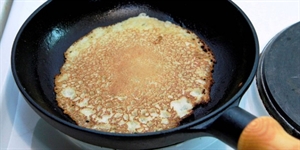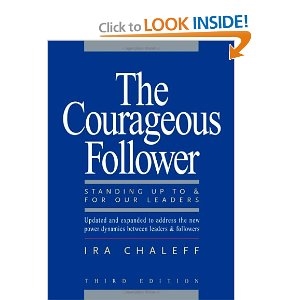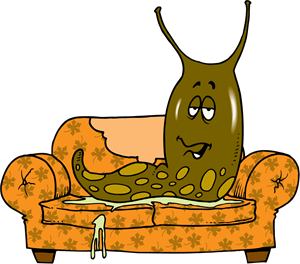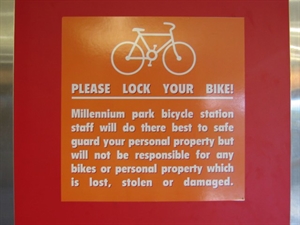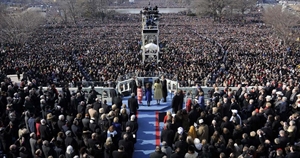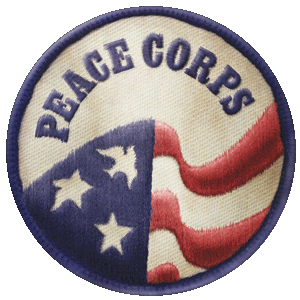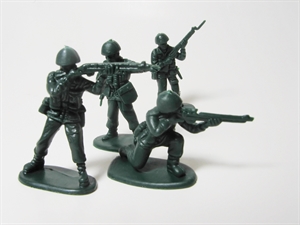Benjamin Harrison Day 2025 is on Tuesday, March 4, 2025: What other jobs did Benjamin Harrison before he became president?
Tuesday, March 4, 2025 is Benjamin Harrison Day 2025. Build-A-Beard - Build Benjamin Harrison
As an Amazon Associate I earn from qualifying purchases.
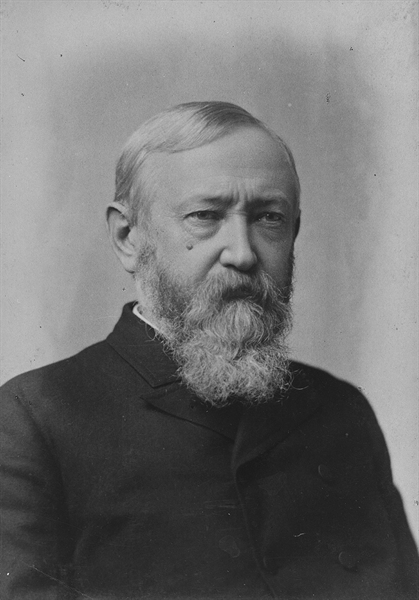
Use Wikipedia like you are expecting others to do for YOUR school project.
Your question is not accurate - it's missing a word. You're welcome.
Add:
[edit] Family and education
The Harrisons were among the First Families of Virginia, with their presence in the New World dating back to the arrival of an Englishman, named Benjamin Harrison, at Jamestown, Virginia in 1630. The future president Benjamin was born on August 20, 1833, in North Bend, Hamilton County, Ohio, as the second of eight children of John Scott Harrison (later a U.S. Congressman from Ohio) and Elizabeth Ramsey Irwin. Benjamin was a grandson of President William Henry Harrison and great-grandson of revolutionary leader and former Virginia governor Benjamin Harrison V.[1] Harrison was seven years old when his grandfather was elected President, but he did not attend the inauguration.[2] Although Harrison's family was old and distinguished, he did not grow up in a wealthy household, as most of John Scott Harrison's farm income was expended on his children's education.[3] Despite the meager income, Harrison's boyhood was enjoyable, with much of it spent outdoors fishing or hunting.[4]
Benjamin Harrison's early schooling took place in a one-room schoolhouse near his home, but he was later provided with a tutor to help him with college preparatory studies.[5] Harrison and his brother, Irwin, enrolled in Farmer's College near Cincinnati, Ohio in 1847.[6] Harrison attended the college for two years.[7] In 1850, he transferred to Miami University in Oxford, Ohio, where he was a member of the fraternity Phi Delta Theta and graduated in 1852.[8] Harrison attended Miami University with John Alexander Anderson,[9] who would become a six term congressman, and Whitelaw Reid, who would be Harrison's vice presidential candidate in his reelection campaign. While attending Miami University, was greatly influenced by one his professors, Robert Hamilton Bishop, who instructed him in history and political economy.[10] At Miami, Harrison joined a Presbyterian church and, like his mother, he would remain a member for the rest of his life.[11] After completing college Harrison took up the study of law in the Cincinnati law office of Storer & Gwynne, but before completing his law studies he returned to Oxford to marry.[12]
While at Farmer's College, Harrison met Caroline Lavinia Scott, the daughter of the University's president, John W. Scott, a Presbyterian minister.[13] On October 20, 1853, they married in Oxford, Ohio, with Caroline's father performing the ceremony. [9] The Harrisons had two children, Russell Benjamin Harrison(August 12, 1854 – December 13, 1936), and Mary "Mamie" Scott Harrison McKee (April 3, 1858 – October 28, 1930).[14]
[edit] Early legal career
After his marriage in 1853, Harrison returned to live on his father's farm where he finished his law studies. In the same year, he inherited $800 after the death of an aunt, using the money to move to Indianapolis, Indiana in 1854.[15] He was admitted to the bar there and began practicing law in the office of John H. Ray. The same year he became a crier for the Federal Court in Indianapolis, making $2.50 per day. He was responsible for passing through the streets and declaring announcements from the court.[14]
While in Indianapolis, Benjamin Harrison was both the first President of the University Club, a private gentlemen's club, and the first President of the Phi Delta Theta Alumni Club of Indianapolis, the fraternity's first such club. Both clubs were still in existence in 2008.[16] Harrison grew up in a Whig household and was himself a supporter of Whig politics in his early life. He joined the Republican Party shortly after its formation in 1856 and that year campaigned on behalf of the Republican presidential candidate John C. Frémont.[17] He won election to become Indianapolis City Attorney in the same election, a position that paid an annual salary of $400.[18]
In 1858 Harrison entered into a law partnership, opening an office as Wallace & Harrison.[19] Harrison was the Republican candidate for the position of reporter of the Indiana Supreme Court in 1860, his first foray into politics. Although this office was not political, he was an active supporter of his party's platform. During the election he debated Thomas Hendricks, the Democratic candidate for governor and future [Vice President of the United States], on behalf of the Republican Party.[20] After his law partner William Wallace was elected county clerk in 1860, Harrison opened a new firm with William Fishback, named Fishback & Harrison, where he worked until his entry into the army.[21]
[edit] Civil War
Colonel Benjamin HarrisonAt the outbreak of the Civil War, Harrison wished to join the Union Army, but initially resisted, as he was concerned that his young family would need his financial support.[22] In 1862, President Abraham Lincoln issued a call for more recruits. While visiting Governor Oliver Morton, Harrison found him distressed over the shortage of men answering the latest call. Harrison told the governor, "If I can be of any service, I will go".[23] Morton then asked Harrison if he could help to recruit a regiment, though he would not ask him to serve. Harrison proceeded to raise a regiment, recruiting throughout northern Indiana. Morton offered its command to Harrison, but he declined because of his lack of military experience, and instead was commissioned as a Second Lieutenant. In August 1862, when the regiment left Indiana to join the Union Army at Louisville, Kentucky, Harrison was promoted by Morton to the rank of Colonel, and his regiment was commissioned as the 70th Indiana Infantry.[24]
The 70th Indiana spent most of its first two years of service performing reconnaissance duty and guarding railroads in Kentucky and Tennessee. In 1864, Harrison and his regiment joined William T. Sherman's Atlanta Campaign and moved to the front lines. On January 2, 1864, Harrison was promoted to command the 1st Brigade of the 1st Division of the XX Corps. He commanded the brigade at the Battles of Resaca, Cassville, New Hope Church, Lost Mountain, Kennesaw Mountain, Marietta, Peachtree Creek and Atlanta. When Sherman's main force made its March to the Sea, Harrison's brigade was transferred to the District of Etowah and participated in the Battle of Nashville.[25] On March 22, 1865, Harrison earned his final promotion, to the rank of Brigadier General, and marched in the Grand Review in Washington, D.C. before mustering out of the army on June 8, 1865.[25]
[edit] Post-war career
[edit] Indiana politics
While serving in the army in October 1864, Harrison was reelected reporter of the Supreme Court of Indiana and served four more years.[26] The position was not politically powerful, but did afford Harrison a steady income.[26] Harrison's public profile was raised when President Grant appointed him to represent the federal government in a civil claim brought by Lambdin P. Milligan, whose wartime conviction for treason had been reversed by the Supreme Court. Due to Harrison's advocacy, the damages awarded against the government were minimal.[27] Local Republicans urged Harrison to run for Congress, but he initially confined his political activities to speaking on behalf of other Republican candidates, a task for which he received high praises from his colleagues.[28]
Benjamin Harrison Home in IndianapolisIn 1872, Harrison entered the race for the Republican nomination for governor of Indiana. He was unable to get the support of former Governor Oliver Morton, who favored his opponent, Thomas M. Browne, and ultimately Harrison lost his bid for statewide office.[29] Harrison returned to his law practice where, despite the Panic of 1873, he was financially successful enough to build a grand new home in Indianapolis in 1874.[30] He continued to make speeches on behalf of Republican candidates and policies.[31]
In 1876 Harrison did not initially seek his party's nomination for governor, but when the original nominee dropped out of the race, Harrison accepted the Republicans' invitation to take his place on the ticket.[32] His campaign was based strongly on economic policy, and he favored deflating the national currency. His policies proved popular with his base, but he was ultimately defeated by a plurality to James D. Williams, losing by 5,084 votes out of a total 434,457 cast.[33] Harrison remained a prominent Republican in Indiana following his defeat, and when the Great Railroad Strike of 1877 reached Indianapolis, he helped to mediate between the workers and management and to preserve public order.[34]
When Senator Morton died in 1878, the Republicans nominated Harrison to run for the seat, but the party failed to gain a majority in the state legislature, and the Democratic majority elected Daniel W. Voorhees instead.[35] President Hayes appointed Harrison to the Mississippi River Commission in 1879, which was founded to facilitate internal improvements on that river.[36] He was a delegate at the 1880 Republican National Convention the following year.[37]
[edit] United States Senator
Walter Q. Gresham, Harrison's rival within the Indiana Republican PartyAfter Harrison led the Republican delegation to the National Convention, he was again mentioned as a possible Senate candidate.[38] He gave speeches in favor of Garfield in Indiana and New York, further raising his profile in the party. When the Republicans retook the state legislature, Harrison's election to the Senate was threatened by his intra-party rival Judge Walter Q. Gresham, but Harrison was ultimately chosen.[38] After President James Garfield's victory in 1880, Harrison was offered a cabinet position, but he declined to begin his term as senator.[39]
Harrison served in the Senate from March 4, 1
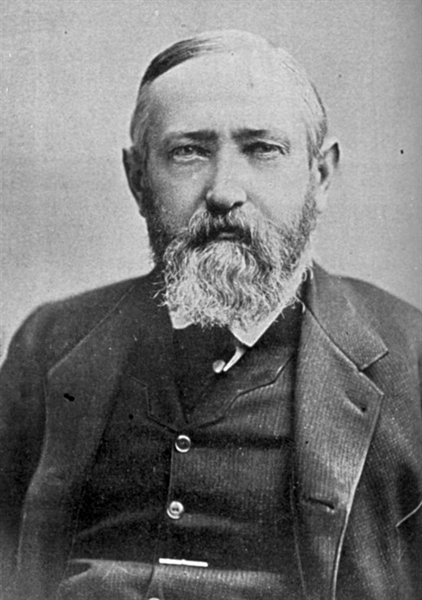
president Benjamin Harrison's behavior?
I don't know much about him either but I hope the following links will help Raul.
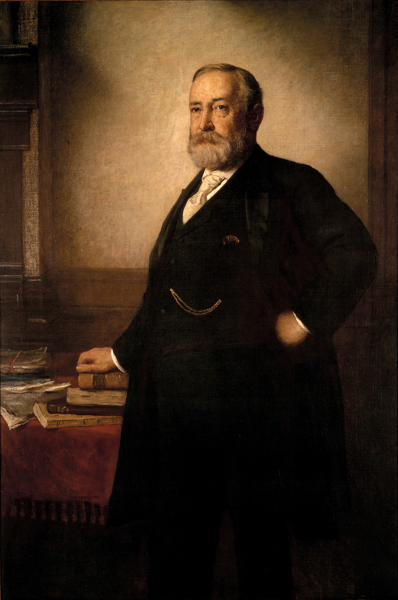
Why was harrison a bad president?
I'm assuming you're referring to Benjamin Harrison. William Henry Harrison was in office for thirty days--not enough time to be a bad president.
Benjamin Harrison is one of the least interesting presidents in the pantheon. He helped establish the Pan American league, but aside from signing the Sherman Anti-Trust act, which was really the work of the Congress, Benjamin Harrison didn't do much. He just sat around and made political appointments. That isn't active badness; it's just inaction, and he could have done more to curb the greed of robber barons. However, it wasn't in him. He was almost a non-entity.












